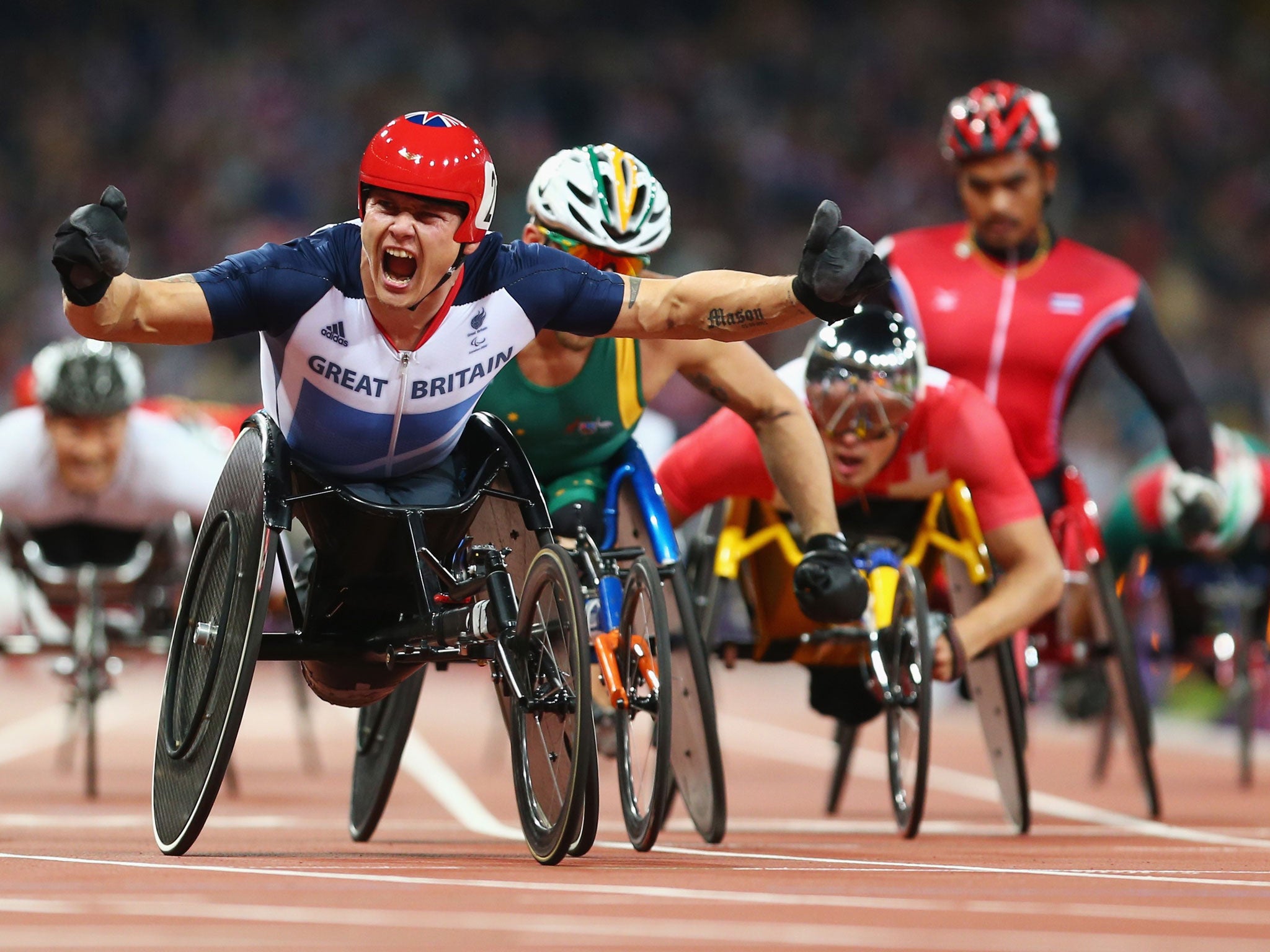Your support helps us to tell the story
From reproductive rights to climate change to Big Tech, The Independent is on the ground when the story is developing. Whether it's investigating the financials of Elon Musk's pro-Trump PAC or producing our latest documentary, 'The A Word', which shines a light on the American women fighting for reproductive rights, we know how important it is to parse out the facts from the messaging.
At such a critical moment in US history, we need reporters on the ground. Your donation allows us to keep sending journalists to speak to both sides of the story.
The Independent is trusted by Americans across the entire political spectrum. And unlike many other quality news outlets, we choose not to lock Americans out of our reporting and analysis with paywalls. We believe quality journalism should be available to everyone, paid for by those who can afford it.
Your support makes all the difference.The most obvious legacy of London 2012 is the ubiquity of the word itself. But it is a word the Paralympic half of the Greatest Show on Earth was never keen on. “We prefer to talk about momentum rather than legacy,” said Tim Hollingsworth, the head of the British Paralympic Association. “Legacy suggests you’ve already achieved your aims. For us, this last year has been about capturing the momentum the Paralympics put in motion.”
“London provided this fantastic platform, but it was the starting point. Now we’re at the foot of the mountain. We know where we’re going, but we’re at the foot of the mountain.”
The British Paralympic Association’s job is to deliver the gold, which it did. Many of the most magical moments of that summer came long after Usain Bolt and Michael Phelps and the rest of the superstars had left Stratford. Three Paralympic athletes made it on the BBC’s Sports Personality of the Year shortlist.
But the association also made it clear that it wanted to use the games to challenge perceptions of disability in society. That the eventual winner of the BBC prize, Sir Bradley Wiggins, has since talked about being “starstruck” at meeting David Weir, who won four wheelchair racing golds, is a testament to success on that front.
Surveys and studies in the wake of the games confirmed the feeling of overwhelming positivity about them. The excitement of the sport, and the inspiration of the athletes. Lots of us felt warm and fuzzy inside, before finally dissolving into tears, watching Ellie Simmonds reel in and pass her American rival on that last battling length of the pool. But it would be wholly wrong to imagine two glorious weeks of Paralympic sport could ever have solved the nation’s sizeable problems with regard to disability.
One of the most memorable moments of that fortnight, sadly, was a crowd of 80,000 people booing the Chancellor of the Exchequer as he presented medals in the Olympic Stadium.
Able-bodied people feeling good about themselves is all very well and may in some immeasurable have positive outcomes, but cuts to disability living allowance have more tangible consequences. Several Paralympic athletes have since claimed it was that money that empowered them to train and play sport. That hate crimes against disabled people rose 14 per cent in 2012 cannot be unlinked from the growing perception, when there is not enough money to go around, that they are a drain on resources.
A forthcoming Care Bill will introduce a cap on costs, leaving half a million disabled people at risk of being unable to afford the support they need to do the basic things in life.
For those that can, the funding for elite Paralympic sport remains in place. ParalympicsGB will be fighting to reclaim second place in the medals table, which it was unlucky to surrender to Russia in London.
As with non-disabled sport, there is evidence from some sports clubs that some Paralympic sports are on the uptake, wheelchair basketball in particular. But only 18.2 per cent of disabled adults in England play sport once a week. The English Federation of disability sport has produced an online tool kit, explaining to sports clubs how to make their facilities disability friendly. Wheelchair tennis, for example, can’t be played on clay courts. Basketball courts need greater run off areas behind the goals if they are to be suitable for wheelchair rugby and basketball.
A year on is too early to measure the success or failure of a promise to inspire young people. “We shouldn’t feel it was just this moment, that has been and gone. I think we’ve maybe started something generational,” said Tim Hollingsworth. “We won’t see the true impact for twenty years, when that young generation has grown up.”
Finding the next generation of Paralympians is a curious challenge. As Baroness Tanni Grey Thompson has pointed out, it’s not always easy to tell how a team might perform in the next Paralympics, or the one after that, because many of the star athletes, sadly, haven’t crashed their car yet, or lost their limbs in a dreadful meningitis attack.
But when they do, sport is now an integral part of the rehabilitation process, which was after all how the Paralympics began, at Stoke Mandeville hospital in 1948.
Transforming perceptions of disability is a comparatively easy task, when you’ve an £11bn party to throw at the problem. Transforming the lives of disabled people is a difficult one, when what little money there once was is diminishing faster even than that glorious 2012 afterglow is fading.

Join our commenting forum
Join thought-provoking conversations, follow other Independent readers and see their replies
Comments